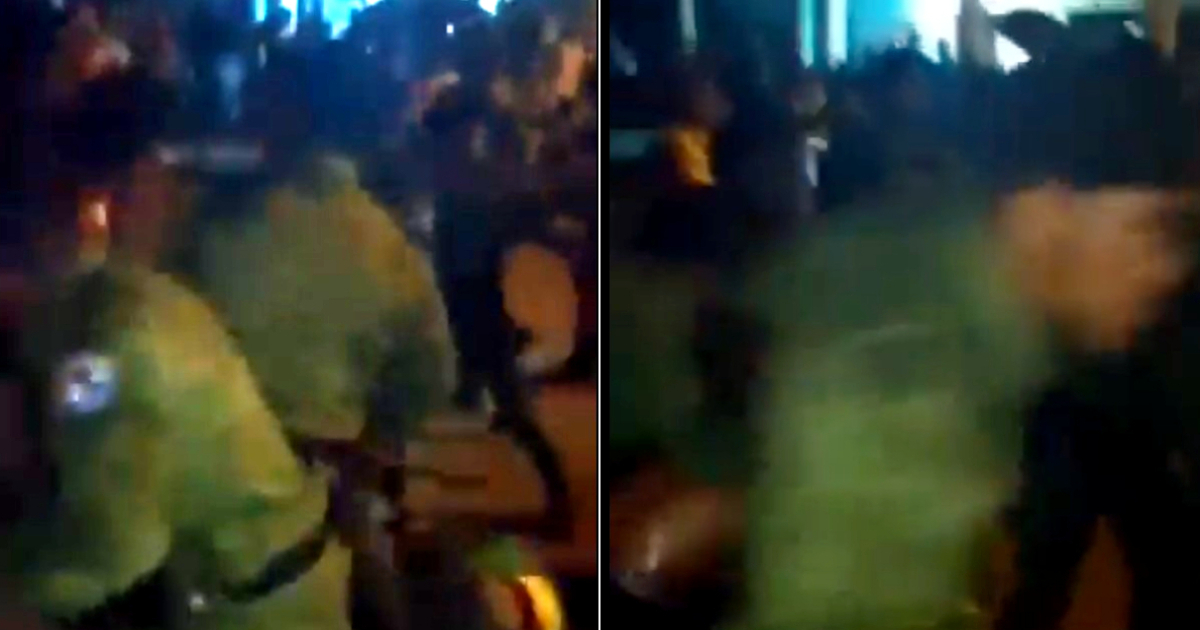
The station Radio Bahia of the Caimanera municipality justified the internet cutoff in Cuba after the massive protests carried out in that town by peaceful protesters who demanded “food” and “freedom”, and who were harshly repressed by the Cuban regime.
The independent media “come up with the little story that if they removed the Internet, that if blah, blah, blah... Well, and if that was the case... what?” said the official radio station in a post Facebook in which he echoed the “reflections” of a regime official on what happened.
Concerned about national sovereignty, the user Pedro Cuba He wondered if the information that circulates freely on the Internet could not compromise it, and compared the scope and international regulations on cyberspace with that of “radioelectric space where the laws that prohibit this type of aggression are already established internationally.”
For Radio Bahia and Pedro Cuba, “the problem is that interference in the internal affairs of nations is a constant, given the global reach of the networks.” If a protest occurs in the country (even if it is legitimate and peaceful, like the one in Caimanera), The government has the right to cut off the internet and solve the problem as it best understands., even through the disproportionate use of violence, came to defend both profiles.
“Suppose that access to the network had exclusive borders within each country. In that case, each person solves the problems from a communicative point of view as established by the laws in their territory," said the Caimanerenses station, invoking the regime's vaunted interpretation of "national sovereignty and interference in the affairs of internal”.
Built as a bastion of its interests, the Cuban regime has constructed with these concepts a doctrine with which it defends its violent exercise of power, interpreting at its convenience the principles of International Law of “non-intervention” and “right of self-determination of peoples.” .
Behind the argument of “national sovereignty” and “non-interference in internal affairs”, the Havana regime ignores criticism from other international actors who compare their exercise of the “monopoly of violence” with that of a State of terror, violating the human rights of its citizens with impunity.
However, for Radio Bahia and Pedro Cuba, the regime has the right to “defend its integrity and political stability” in the way it sovereignly understands, without anyone discussing the nature of the alleged threat (a citizen claim) or the means to neutralize it (repression). . They are “internal affairs” of a “sovereign” State.
“Imagine that I pass by your house, at the moment when you are discussing a problem with your family, that I stop at your door, that I enter without asking permission, that I insert myself into your family's conversation and incite your son, daughter, sister, brother or any other family member to attack you, and if you defend yourself, let him go out into the street to tell a distorted story about the problem and shout that you are a scoundrel," they exemplified.
Using your same comparative argument, you could describe the situation in these terms: if a father hits his son in a family argument, you move on and do not ask about the minor's rights or make your complaint public. Let “the family” solve their problems as they see fit, even if it goes against the “best interests of the minor” and other legal interpretations of the case.
With others words, Radio Bahia and Pedro Cuba come to defend this hypothesis. Believing that in this way they consolidate the thesis that maintains that Cuba is “sovereign” to act as the government sees fit, without “interference in its internal affairs,” The local station and the official endorse the violent and totalitarian behavior of a regime that has been in power for more than sixty years, denying rights and freedoms to “their children.”
“If Cuba defends itself, it defends its integrity, its political stability; That concerns Cuba and the Cubans. Everything else is dust and smoke. Here the working people are in charge; The one who has to decide is the working people. Nobody gives up here,” the official spokespersons concluded, putting an end to it with a worn-out filigree of Castroist propaganda.
So, if the regime causes a digital blackout so that critical events that affect its “political stability” are not disseminated, it is within its rights, even though access to the Internet is recognized as a human right by the Organization of the United Nations. United Nations (UN).
Díaz-Canel and his entourage, responsible for the deep crisis in Cuba, can use Black Berets and other repressive forces of the regime at will. It doesn't matter what the Agenda 2030 for Sustainable Development, or what is supported by the “Joint Declaration on Freedom of Expression and the Internet” of the OAS.
It doesn't matter what Declaration of the UN make it clear that there is no reason to justify the interruption of Internet access, whether for entire populations or segments of the public, even for reasons of public order or national security.
On the Island of Radio Bahia and Pedro Cuba, the "digital blackouts" and brutal beatings remain "in the family."
What do you think?
SEE COMMENTS (4)Filed in: